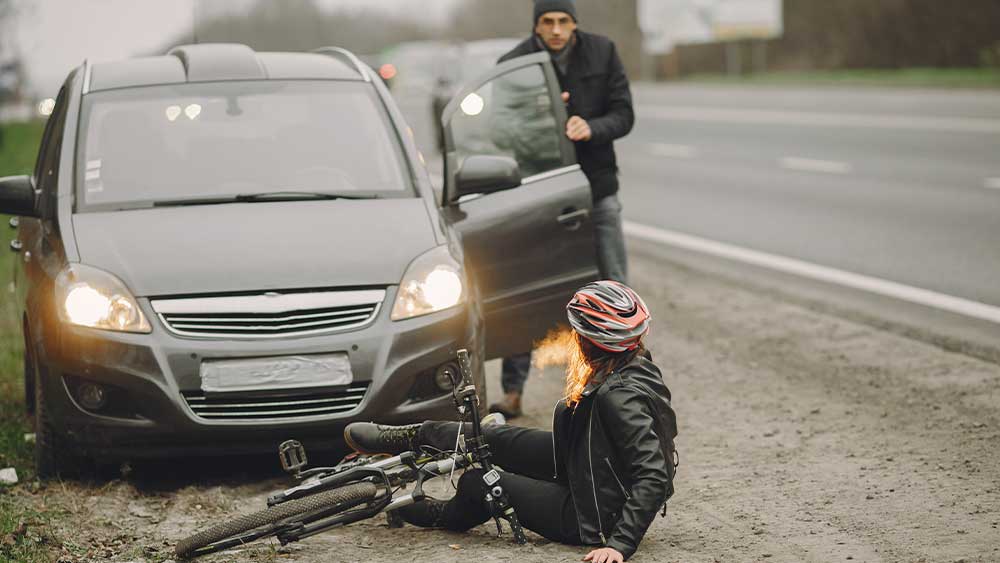Top Legal Lifelines for Cyclists: Accessing Help After Bike Accidents

Cycling is becoming more popular both as a means of transportation and recreational activity, leading to a rise in bike usage and, unfortunately, bike accidents. In the event of an accident, cyclists may be unsure of their next steps or what legal options they have. Legal lifelines for cyclists offer essential resources and support to help navigate the aftermath of an accident. This guide will cover the legal options available to cyclists after an accident and how to access these resources.
What to Do After a Cycling Accident: Top Legal Lifelines for Cyclists
1. Legal Rights and Protections for Cyclists
Cyclists have legal rights and protections that are specifically designed to ensure their safety on the road. For example, in most states, cyclists have the same rights as motorists and are entitled to use the roadway just like any other vehicle. Additionally, many states have laws that require drivers to give cyclists a minimum amount of space when passing them on the road.
In case of an accident, cyclists also have the right to seek compensation for their injuries and damages from the responsible party. If you require a bicycle accident lawyer, you can check out this URL or contact your local bar association for a referral. Cyclists need to be aware of these legal rights and protections to protect themselves on the road.
2. Steps to Take After a Bike Accident
Being in a bike crash can be traumatic, and knowing what to do next can be hard. Here’s what cyclists should do after an accident:
- Seek medical attention: Always get checked by a doctor for injuries, even if you think you’re fine.
- Document the accident: Take photos of the scene, injuries, and any damage to your bike or nearby property. This helps prove fault and claim compensation.
- Get contact information: Swap details with the other person involved, including name, phone number, and insurance. Get witness contact details too.
- Report the accident: Call the police and report the accident for an official record, which helps in legal cases.
- Track expenses and damages: Keep a record of medical bills, bike repairs, and other costs from the accident. This is crucial for compensation claims.
- Consult a lawyer: Consider talking to a lawyer who knows about bike accidents to explore your legal rights and options.
3. Seeking Medical Treatment and Documentation

After a bike accident, seek medical attention as soon as possible. Even if you feel fine, some injuries may not show physical symptoms right away. Seeking medical treatment can help identify any underlying injuries and ensure that you receive the proper care. Furthermore, documentation of your injuries and treatment is essential in building a strong compensation case.
Keep records of all medical bills and appointments, as well as any recommended follow-up care. This documentation can be used to demonstrate the extent of your injuries and expenses related to the accident. Take photos of any visible injuries, as they may heal over time but can still serve as evidence in your case.
4. Gathering Evidence for a Potential Lawsuit
In the event of a bike accident, gather evidence that can support a potential lawsuit. This includes collecting information from all parties involved, such as contact and insurance details, as well as witness statements and photos of the scene and any visible injuries or property damage.
Keep records of any expenses related to the accident, including medical bills and bike repairs. You can also request a copy of the police report, which will document important details about the accident and may include statements from witnesses.
5. Options for Financial Compensation after a Bike Accident
If you have been involved in a bike accident, there are various options for seeking financial compensation. Depending on the circumstances of the accident and your injuries, you may be entitled to compensation for medical expenses, lost wages, pain and suffering, and property damage. You can pursue compensation through insurance claims from your insurance or the responsible party’s insurance. In some cases, it may be necessary to file a personal injury lawsuit to seek full and fair compensation.
6. Resources and Support for Cyclists in the Aftermath of an Accident

In the aftermath of a bike accident, cyclists need to have access to resources and support that can help them navigate the legal process and seek compensation. Many areas have local organizations or support groups specifically for cyclists who have been involved in accidents.
These groups can provide emotional support, as well as connect cyclists with resources such as legal aid and rehabilitation services. There are online resources and forums where cyclists can find information and support from others who have been through similar experiences. Cyclists need to seek out these resources and support systems to help them during this difficult time.
Conclusion
Cyclists need to be aware of their legal rights and options in the event of a bike accident. Knowing your legal lifelines can make a significant difference in the outcome of a bike accident, so be sure to educate yourself and seek help when needed. Stay safe on the road and happy cycling!

news via inbox
Sign up and never miss out on the latest news and updates at HighStuff



